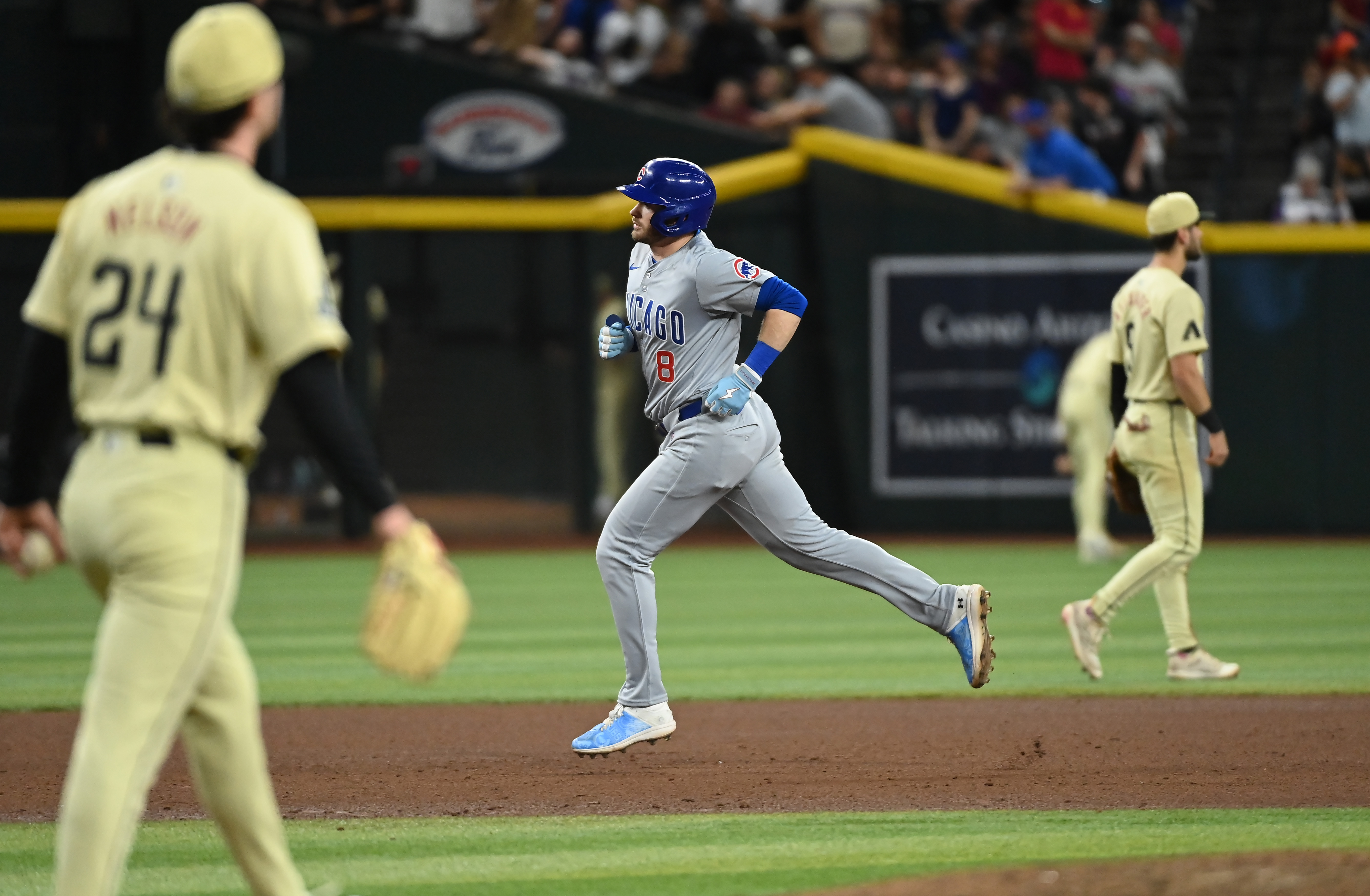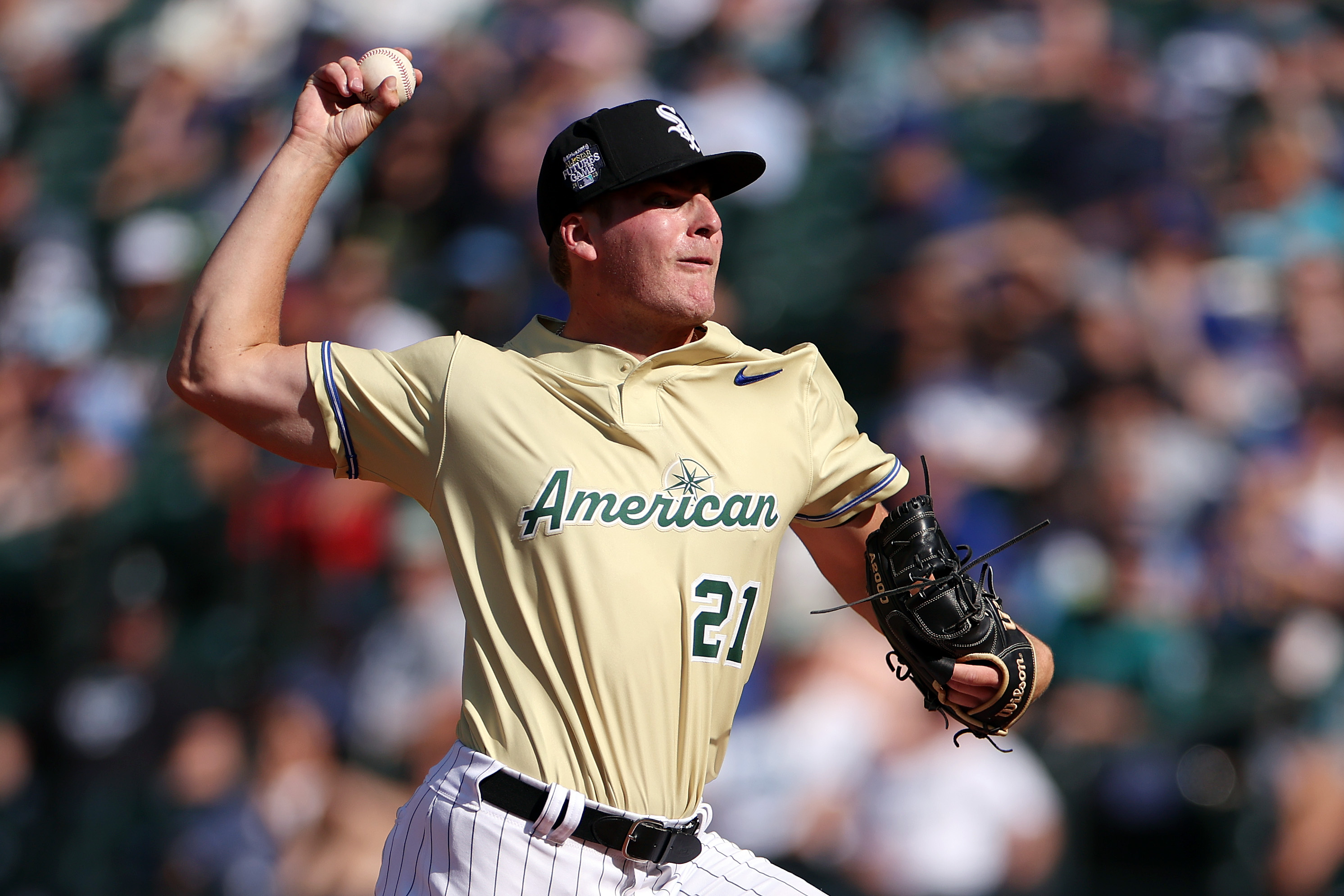When Bob Kendrick first heard that MLB was considering designating the Negro Leagues as “major league,” he was wary of the move.
“I went into my radical mode,” the president of the Negro Leagues Baseball Museum recounted with a smile. “I knew so many of these Negro League players, and they were so proud. And they knew they were good, and they knew the league that they played in was good. And quite frankly, the Major Leaguers knew that they were good. And so, I'm saying to myself, ‘We don't need you to validate us.’”
While that remained true, when commissioner Rob Manfred announced on Wednesday that MLB was changing the Negro Leagues’ designation to “major League,” Kendrick celebrated.
Stay in the game with the latest updates on your beloved Chicago sports teams! Sign up here for our All Access Daily newsletter.
“I had to step outside of myself,” Kendrick said Thursday on the Cubs Talk Podcast. “And I needed to look from the outside in, as opposed to the inside out.
“I'm so close to this. And I had to think about what this meant, for historical sake. And for future baseball fans who are going to be hearing about some of these names for the first time, and they're going to see them listed with those others who are iconic in Major League Baseball. And then it changed my perspective.”
As was the case in many American cities, The Negro Leagues played an important role in the history of Chicago, home of the American Giants, and vice versa. In 1920, Andrew “Rube” Foster, owner of the Chicago American Giants, organized the Negro National League. This year, MLB used that date to recognize the Negro Leagues on the centennial.
For the Cubs, Buck O’Neal was a Negro Leagues legend before he became the first Black coach in MLB. Ernie Banks began his major league career with the Kansas City Monarchs, and Mr. Cub may not have become a Cub at all if it weren’t for Cool Papa Bell’s influence.
MLB
“The city of Chicago lost perhaps its two most iconic baseball players within about two months of each other (in 2015): Ernie Banks, and Minnie Miñoso,” Kendrick said. “And both of them guys -- both of them -- come out of the Negro Leagues. The league that was not considered ‘major.’”
Before the Negro Leagues’ change of designation, Kendrick started digging into the Special Committee on Baseball Records’ decision to omit the Negro Leagues from consideration in 1969. Kendrick hadn’t given the committee any thought before.
“Because I'm going back to the fact that we don't need you to validate us,” Kendrick said. “But once I discovered it, and this (designation-change movement) started to build, you knew what the historical significance would be if it were to happen.”
The 1969 committee, which was five members and all-white according to the Washington Post, instead gave “major league” status to six other leagues extending back to 1876. At least one of those leagues lasted for just one season.
“There's no question that this was racially motivated,” Kendrick said. “Because you've got all these little rinky-dink leagues that are being recognized as ‘major’ that had virtually no impact on the game whatsoever, and certainly had no impact on Major League Baseball.
“And you've got this league that prior to integration, they were filling up Major League ballparks, Major League Baseball with making money from them. And then with integration, you bring all of this great talent out of this league that was not considered ‘major.’”
Kendrick still doesn’t want or need MLB’s validation. But he no longer sees the Negro League’s new designation that way. He instead sees the move as “long overdue recognition and acknowledgement.”
“For those courageous owners, who financed these teams,” Kendrick continued, “and those players who were so passionate about the game and played against the backdrop of American segregation, it was indeed a very proud day for everyone who called the Negro Leagues home.”


